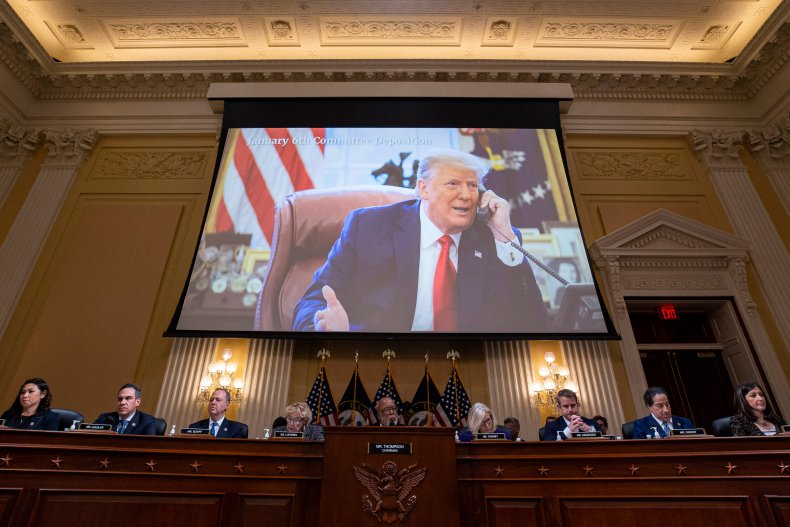Former President Donald Trump’s most likely defenses against his federal criminal charges for election subversion are risky and could very well backfire on him, according to legal expert and professor Steven Lubet on Monday.
At the start of August, Trump was hit with his second federal criminal indictment, this time for his alleged efforts to subvert the results of the 2020 election, the result of an investigation into the matter by the Department of Justice (DOJ) and special counsel Jack Smith. The indictment leveled four charges against the former president, including conspiracy to defraud the United States, conspiracy to obstruct an official proceeding, attempt to obstruct an official proceeding, and conspiracy against rights.
Trump pleaded not guilty to the charges during his arraignment hearing in Washington, D.C., and has dismissed the case as a politically motivated attack against him as he runs for president again in 2024.
In a column for CNN on Monday, Lubet, a professor emeritus at the Northwestern University Pritzker School of Law, wrote that the case against Trump hinges on whether or not he spread falsehoods about the 2020 election while knowing that they were not true, noting that the indictment uses the phrase “knowingly false” 32 times and describes around 100 allegedly false claims that Trump made. His main defenses, Lubet wrote, would either be to claim that he genuinely believed the things he was saying or to claim that he was led on by bad advice from his lawyers.

Al Drago/Getty
Once in court, Lubet continued, these tactics could very easily backfire. If he were to insist that he believed the claims he made and testify as such as a witness, he would waive his own Fifth Amendment rights and potentially open himself up to being grilled on his many alleged, disputed statements.
“The result would likely be devastating,” Lubet wrote. “At a minimum, Trump would be questioned about every false statement alleged in the indictment. If he denied making the claims, there would almost certainly be prosecution witnesses to contradict him. If he maintained that his statements were all true, there will be a mountain of evidence to contradict that. And if he continued to insist that he believed everything he said—about ‘alternate’ electors, finding 11,780 votes in Georgia, and Mike Pence’s authority to reject electoral votes—his cascade of denials would soon become self-evidently implausible.”
Furthermore, if Trump were to try and claim that he had been given bad counsel by his legal team, known as the “advice of counsel” defense, it would void attorney-client privilege and would prevent the likes of Rudy Giuliani or John Eastman from claiming confidentiality to avoid testifying about their alleged involvement, the legal analyst added.
“The lawyers, some of whom have been identified as unindicted co-conspirators, could assert the Fifth Amendment for themselves, but that would just undermine Trump’s defense,” Lubet wrote. “Moreover, the privilege waiver would also apply to any of the lawyers who confidentially told Trump he had lost the election, making them available to testify against him even over his objection.”
In a statement to Newsweek, a spokesperson for Trump dismissed Lubet’s argument and his standing as an expert.
“This unhinged Democrat donor and Biden supporter has no idea what he’s talking about and nobody should be taking any legal advice from someone who is clearly compromised,” the statement read. “President Trump will not be deterred, he will fight these hoaxes at every turn, and will win for the American people.”
Updated 08/28/2023, 6:57 p.m. ET: This article was updated to include a comment from a Donald Trump spokesperson.









